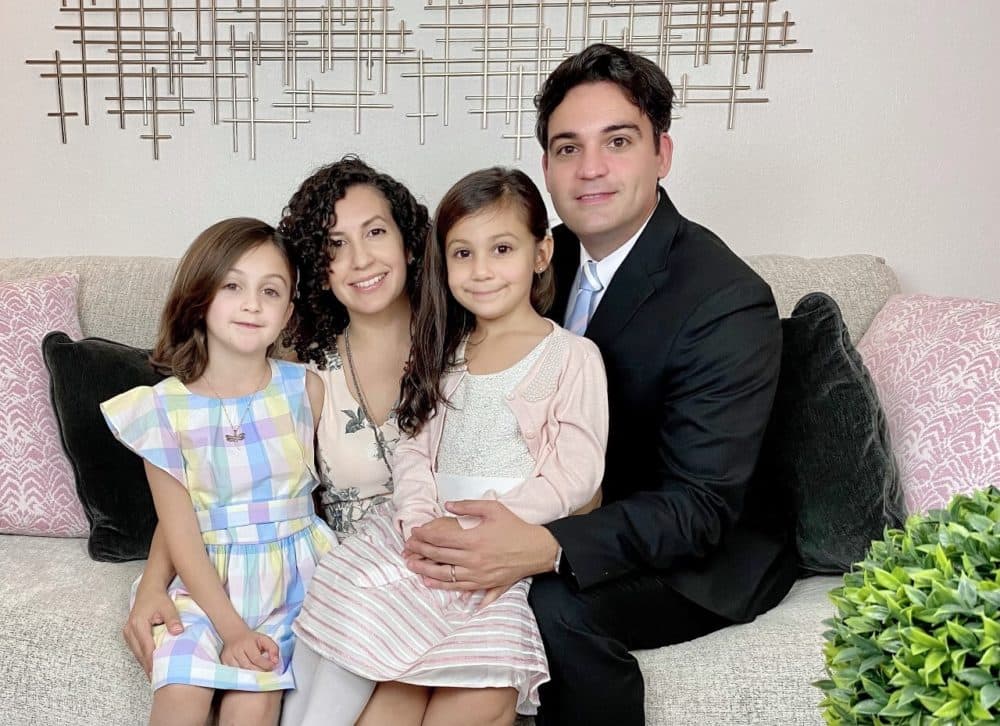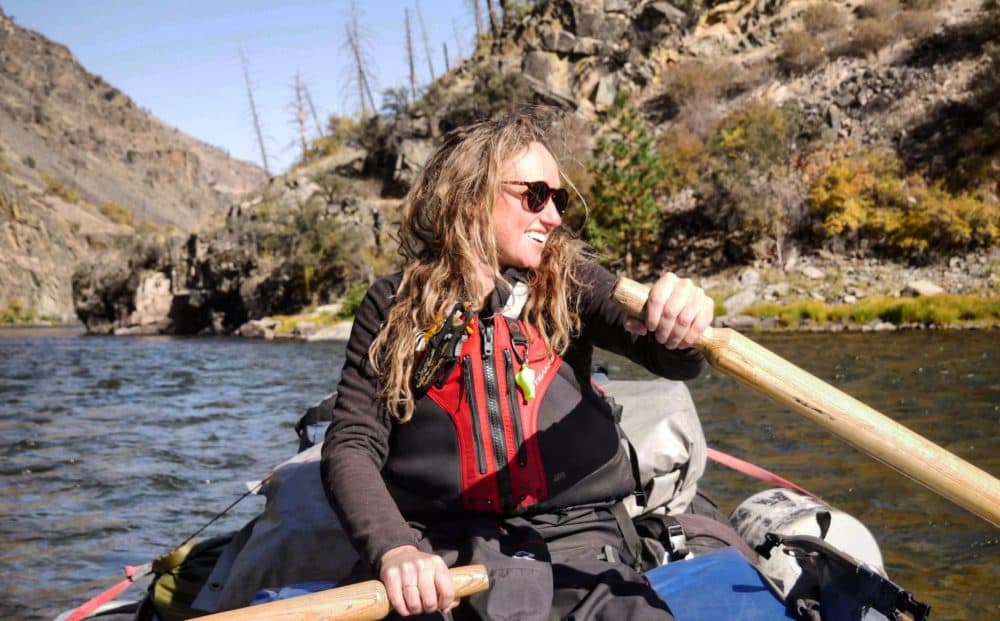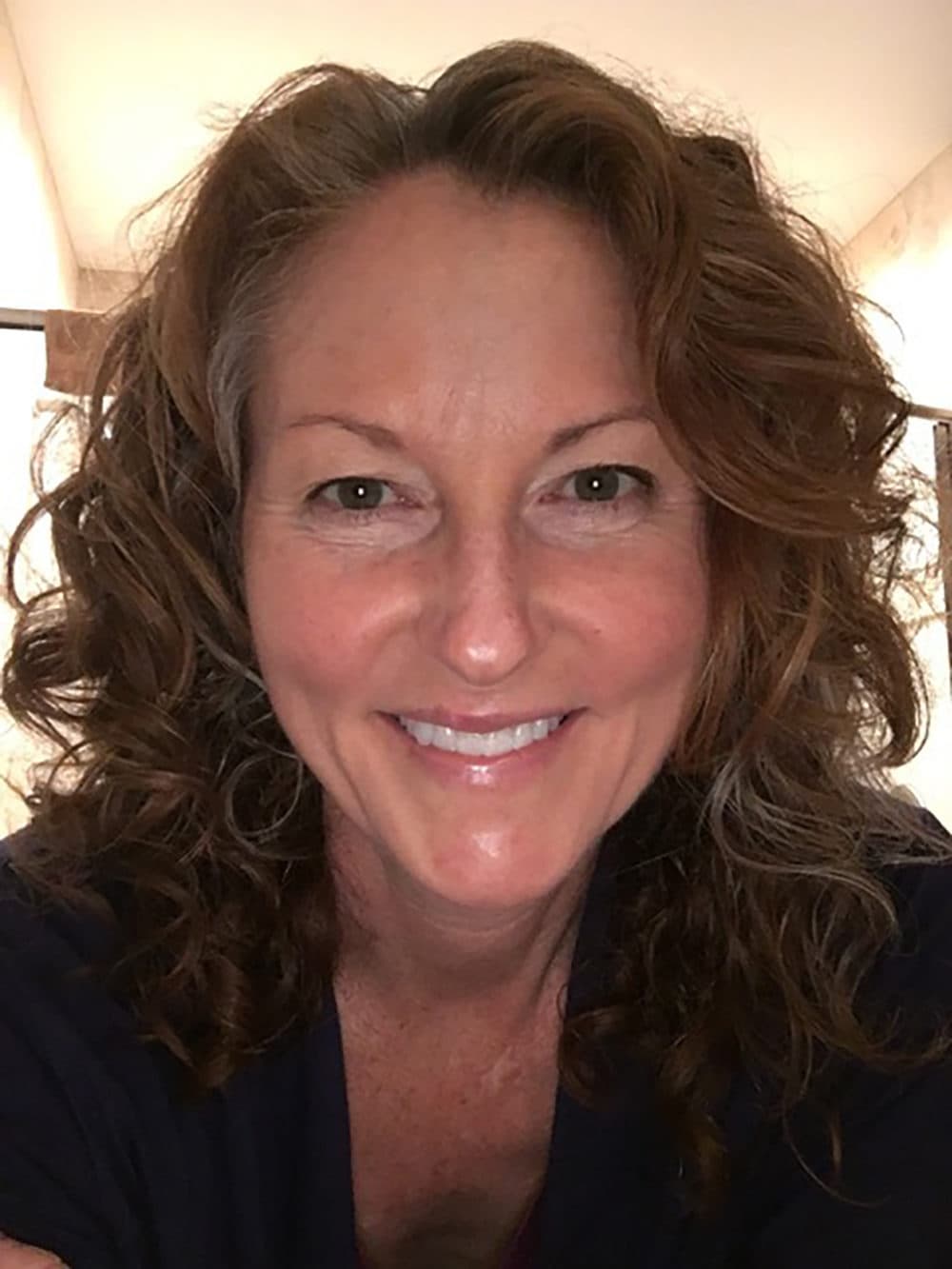Advertisement
A Year Into The Pandemic, Listeners Share Hopes For Community And Resiliency
We've been reflecting on life one year into the pandemic and all the changes that have come with it. We asked listeners to share their thoughts, and the submissions have been wide-ranging.
While some are still coping with loss and grief, others have told us about moments of resilience and hopes for the future.
Here & Now's Lisa Mullins shares the voices of listeners Jatniel Garcia of Coconut Creek, Florida; Jennifer Drayton of Sacramento, California; and Carlye Sayler of Leadville, Colorado.


Pandemic Reflections by Carlye Sayler:
One year ago, I was on the last trip to launch on the Colorado River in the Grand Canyon. We started the 21-day expedition one day before a state of emergency was declared and, without any cell service, we had almost no information for the first month of the pandemic. I wrote the following in the first few weeks of April last year. It's striking to reread now, knowing how little we knew then and how many have died since.
“He just said three million Americans applied for unemployment last week,” Caroline whispered to me as we shouldered another heavy frame off the rubber and into a pile of gear that was quickly accumulating on the beach. She nodded toward the three outfitters standing in the back of the giant truck. They were the first people from the world-beyond-the-river that we’d seen in almost two weeks, and all of them were wearing latex gloves and surgical face masks.
“You’re gonna want to keep all the food you have left. Shelves are empty at the grocery stores and restaurants are closed.” His eyes tried to smile reassuringly above his mask. “You might need it soon.” I grabbed three cans of chili beans and a Reese's peanut butter cup as my heart slowly sank. What’s going on?
Advertisement
My mind raced back to the start of the trip. The night before our launch from Lee’s Ferry, we shared fry bread and margaritas at a local restaurant. We talked about dinner teams, drysuits, Lava Falls, the election, climate change, … had coronavirus come up at all? On March 10, COVID-19 was a distant crisis. Wasn’t it? We launched the next morning, which meant we were disappearing out of sight and cell service for the next 21 days in the Grand Canyon.
For the first 7 days of our trip, we ran famously huge rapids, hiked side canyons in sequined costumes, and drank merrily from the same bottle. We instantly built a close family in a way that you only can on a river trip. Sharing stories, booze, groover duty, and every minute together, you get quite intimate very quickly. Which was lucky, because on day 8 we pulled into the massive eddy at Phantom Ranch and our blissful bubble burst.
87.5 miles from where we started, the remote ranch sits at the bottom of the canyon and can only be reached by foot on a ten-mile trek or by rafting the Colorado River. In addition to the small cabins available for reservation, there is a staffed ranger station, a spigot to refill water jugs, and a small saddle bag that carries out postcards by mule once a week. We eagerly climbed out of our boats, most of us with postcards to mail and excited to explore the oasis around Bright Angel Creek.
“Diamond Creek’s closed,” said a man on another trip. “The ranger just told us.” Diamond Creek? That was our takeout spot. How could it be closed? “Check in with the ranger. Apparently, coronavirus is real bad out there. Everything’s closed.” I’m not kidding: A storm was rolling in. The temperature dropped as grey, threatening clouds stirred overhead and the mood of the place began to match the brooding sky. If Diamond was closed, what were we supposed to do? Float down to Pearce? That’s an extra 54 miles… With more urgency, we walked the sandy trail along the creek to the ranger station. On the way, we passed a bulletin board with a sign informing travelers that the Grand Canyon National Park bus service was no longer in operation due to the virus. “Yep, that’s right. Even Kevin Durant has it,” the ranger informed us. “All the schools are shut down. Hotels are starting to close. Some restaurants are closed. Every town is doing its own thing. I’d call your outfitter.” We read the laminated signs plastered on every door: ‘Practice Social Distancing’. ‘Wash Your Hands’. What the hell?
Our trip leader talked to the outfitter and informed us that we were the last trip to launch that could still take out at Diamond, but there were some stipulations. Get there early. Don’t touch anything. Don’t talk to anyone. It was a lot to take in and too much to process. We still had Horn, Granite, and Hermit to run before camp. “Let’s get out of here.” These were some of the biggest rapids we’d run yet and they kept us preoccupied for the remainder of the afternoon, but the weight of the information we’d just learned sat heavy in our stomachs.
In the days after Phantom, we still had no way of connecting with the world. We joked about an impending apocalypse and scanned the skies for airplanes. “If planes are still flying, things must be normal. Unless those are military jets...” We laughed nervously. But, all of us were scared in our own ways. People are sick. What does this mean for my job? What about a river season? Will my flight still go? Are my kids okay? We honestly thought we were probably exaggerating the situation above the rim when we mulled it over for too long. We had so little information and it was easy to jump to conclusions and imagine the worst. Which, we decided, was silly. Better to just be present, enjoy the river, and trust that things were okay. And so we continued floating in that blue and amber paradise, having some of the best days of our lives.
Now, from the Diamond Creek takeout, we realized that we hadn’t been exaggerating at all. In fact, it seemed like we had dramatically underestimated the severity of the situation. I wanted to check in with my family, but we wouldn’t have service for several more hours and my phone was in Flagstaff anyway. We piled into two separate vans, each with the front bench removed to keep the driver a safe distance from his passengers. “Thanks for risking your life to come pack us out,” someone chuckled as we slowly lumbered up the dirt road. We all expected him to laugh heartily or maybe just nod and say “no problem.” Instead, he said, “I wish I could say it doesn’t feel like that’s exactly what I’m doing.” Silence. Out in the empty desert, we passed below a highway sign that read Practice Social Distancing: Stop the Spread of COVID-19.
And then the murderous dinging of phones began as we crawled out of the belly of the canyon and bounced onto Interstate 40. People started reading the texts and emails they’d missed while we were floating.
“Schools are closed through April 30th.”
“Our hotel in Flagstaff is closed. They canceled our reservation.”
“My flight’s been canceled.”
“They say not to take airplanes right now anyways.”
“New York hospitals have rows of refrigerator trucks parked outside; they don’t have enough space for all the dead bodies.”
We pulled into a gas station. Our driver advised us not to go inside unless we absolutely had to. “Don’t touch anything and stay a good distance away from other people.” Fuck. Caroline and I peed out behind the building near some railroad tracks. My mom had cancer last year. I borrowed a phone and dialed her number. 4,000 dead. Each ring felt like an eternity and when I finally heard her cheery voice on the other end, I immediately broke down. I cried silently because it seemed like an important time to be strong and determined. She could tell, though. She called me sweetie and told me that everyone was fine; it hadn’t hit Colorado that hard yet, and we were just hearing the worst of everything. But she also said that I should get home as soon as I could.
The world had changed forever. Back in the van, the group echoed a phrase that we’d thrown around while passing tequila bottles between rafts or stemming through slot canyons or discovering pictographs hundreds of feet above the canyon floor: “We had more fun these last three weeks than literally anyone else in the whole world.”

Pandemic Reflections by Jennifer Drayton:
What does it feel like to live through a plague? If you’re lucky, it feels relentlessly boring. It’s drudgery. It feels close and constricting. You make lists, make sacrifices, make meal after meal. You load and unload the dishwasher. You celebrate when your fridge contains nothing more than condiments and a single flabby green onion at the end of the week because you know you’ve bought and prepared exactly enough and little has gone to waste.
You’re constantly pumping lotion into your perpetually dry, washed hands. Your hair grows long and gray. Your upper lip sweats under a mask. You wear a lot of sweatshirts and hardly any underwear.
You tend your own garden and try to learn to feel expansive in a small space. You don’t ask people how they are; you ask them how they are today. You do not get too far ahead of yourself. You don’t make plans for more than a week ahead. You stream a lot of period costume dramas because you want to be reminded that times have always been hard and fraught and unjust and uncertain, and yet people survived them. You sleep a lot.
You pay attention to the stars. You watch planets creep up on one another and then move apart. You notice the quiet outside, and you hear more birds singing. You watch the grass grow green then yellow then green again. You pity the poor trees that hardly get a winter’s rest before they have to start churning out new buds again.
You notice empty parking lots and stores with boarded up windows. If cars pile up at a traffic light, you wonder “Where the hell is everybody going?” You see so many people setting up camp against fences and in ditches and under overpasses that it makes your heart hurt. You see restaurants with desperate makeshift signs that say PICK UP NOW AVAILABLE. When you do order takeout from the two restaurants you can’t bear to think of closing, you append $20 tips to your $40 order.
You bag up canned food at the food pantry, and you load groceries into cars that people are clearly living out of. You thank them for coming as if they were diners in a fine restaurant. You call them “my friends,” and you wish them a good week although you wonder how on earth they’ll have one.
You commit yourself to making eye contact with your checker at Trader Joe’s every Sunday and asking them if anyone has told them how much they appreciate the work they do. You force yourself to do it, even when you’re feeling sad or annoyed or scared. You wonder if you stop now, will someone be overtaken by grief? Will someone snap? Will someone just give up? You make yourself say it every time, like an incantation, a small spell you cast at the checkstand. It’s your own way of inoculating one human against despair, and you’re there to administer it because you’re privileged to be healthy and whole. Afterward you sit in your car and rub hand sanitizer into your palms and cry a little. And then you take a deep breath and drive home to resume the same small, steady stream of tasks that keep you healthy and whole. You recommit to seeing the sameness as victory, one day, one hour, one breath at a time.
This segment aired on March 18, 2021.